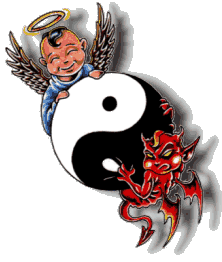
japan_now: Japanese Children's depression&suicide a worsening problem
Here is an excerpt, presented by Shukan Asahi (Nov 27), from the suicide note left by an 11-year-old boy: “All I can think of is death. I realize that once you die it’s all over; still, if there is a next life I’d like to come back as an animal like [my pet dog], who doesn’t cause anyone any trouble and even when he does weird things, nobody pays any attention. I’m sorry I couldn’t be better than I was. Goodbye.”
Here is an excerpt, presented by Shukan Asahi (Nov 27), from the suicide note left by an 11-year-old boy: “All I can think of is death. I realize that once you die it’s all over; still, if there is a next life I’d like to come back as an animal like [my pet dog], who doesn’t cause anyone any trouble and even when he does weird things, nobody pays any attention. I’m sorry I couldn’t be better than I was. Goodbye.”
Japan’s suicide rate is notoriously high. For the past decade it’s been above 30,000 a year. Overwhelmingly, suicide is an adult phenomenon—but not exclusively, and the clinical depression that generally underlies it, Shukan Asahi finds, is steadily trickling down the age scale. Hokkaido University professor Kenzo Denda, author of a book on children’s depression, has published research showing that one elementary school child in 12 suffers from the condition. Among junior high school students the rate is one in four.
To psychologist Rie Ueki, that sounds like an understatement. The problem is worse, she says, than a standardized survey can show.
Ueki had treated “A-kun,” the 11-year-old suicide, and knew his family. Both his parents were lawyers, the very personifications of success. Dinner-table talk was of “winners” and “losers.” A-kun, listening quietly, knew what was expected of him. Measured against such standards, how could he help doubting himself? He feigned strength and happiness, but often his defenses broke down. Trivial slights would overwhelm him. A friend refusing to share his gum with him could plunge him into a sulk that lasted a day and a half.
The parents at last sought medical help, and Ueki diagnosed clinical depression. To her, A-kun would confess the inner turmoil he tried to keep hidden from his parents. “I’ve been suffering since grade one,” he said. “Why was I born?”
National Police Agency statistics cited by Shukan Asahi show nine children committed suicide in Japan last year. It’s not a shockingly high number, but, says Ueki, “I meet children in hospitals who, even if they haven’t actually killed themselves, seem on the very brink of it—if they kill themselves tomorrow, it wouldn’t surprise me. A-kun was not a special case.”
The obvious question is, what drives such young children to such extremes of despair? There’s no easy answer, Shukan Asahi hears from specialists. Children, unlike adults, can’t articulate their deeper feelings. Sometimes they express themselves through violence, deviant sexual behavior, shoplifting—but these acts don’t “look like” depression, and even doctors don’t always get the message.
Ueki’s hypothesis is that a child’s depression invariably indicates something seriously off kilter in the family. There are various signs—the obsession with “winning” and “losing” in the case of A-kun’s family, for instance. Children aware of parents’ extramarital affairs are also at risk, as are, of course, children of parents suffering from depression and stress themselves.“
What children need above all,” says Ueki, “is their parents’ unconditional love. A child who is loved does not become depressed. But nowadays many parents complain of being unable to love their children, to take pleasure in them. These days, it seems more difficult than ever to give children a normal upbringing.”
source; japantoday


No comments:
Post a Comment